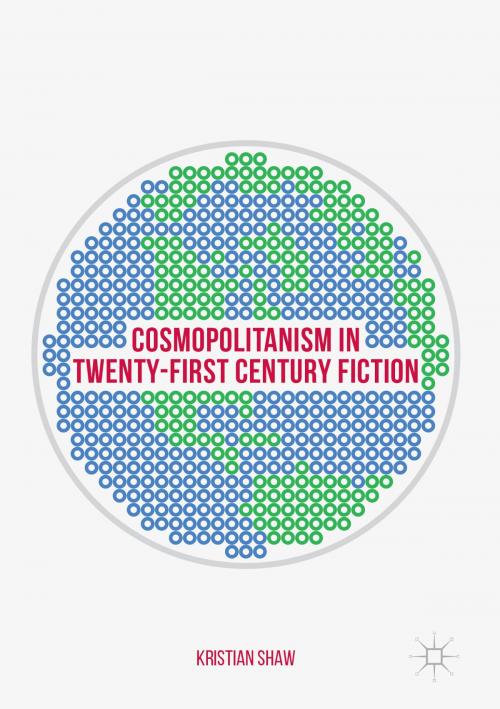Cosmopolitanism in Twenty-First Century Fiction
Nonfiction, Social & Cultural Studies, Social Science, Cultural Studies, Ethnic Studies, Fiction & Literature, Literary Theory & Criticism| Author: | Kristian Shaw | ISBN: | 9783319525242 |
| Publisher: | Springer International Publishing | Publication: | March 27, 2017 |
| Imprint: | Palgrave Macmillan | Language: | English |
| Author: | Kristian Shaw |
| ISBN: | 9783319525242 |
| Publisher: | Springer International Publishing |
| Publication: | March 27, 2017 |
| Imprint: | Palgrave Macmillan |
| Language: | English |
“Cosmopolitanism contains some of the most polished and enviably well-written chapters of literary criticism that have ever come my way. Shaw’s readings are critically informed and theoretically sophisticated, yet at the same time remarkably lucid and clear. This is a work of very fine, well-balanced, and – for a first book – astonishingly mature scholarship.” — Prof Berthold Schoene, Head of Research and Knowledge Exchange, Manchester Metropolitan University, UK
“The first study to fully appreciate contemporary literature's engagement with cosmopolitanism. A persuasive and articulate engagement with questions of ethics, community, transnationalism and cultural identity, it's an essential read for anyone interested in the contribution of contemporary fiction to our world today”. — Dr Sara Upstone, Principal Lecturer in English Literature, Kingston University, UK.
This study of cosmopolitanism in contemporary British and American fiction identifies several authors who forge new and intensified dialogues between local experience and global flows. The twenty-first century has been marked by an unprecedented intensification in globalisation, transnational mobility and technological change. The theories and values of cosmopolitanism will be argued to provide a direct response to ways of being-in-relation to others and answer urgent fears surrounding cultural convergence. The four chapters examine works by David Mitchell, Zadie Smith, Teju Cole, Dave Eggers and Hari Kunzru. The study will demonstrate how these authors imagine new cosmopolitan modes of belonging and point towards the need for an emergent and affirmative cosmopolitics attuned to the diversity and complexity of twenty-first century globality. The study assumes an interdisciplinary approach and will appeal to literature academics, under-/ postgraduate students, and researchers interested in the culture and politics of contemporary life.
“Cosmopolitanism contains some of the most polished and enviably well-written chapters of literary criticism that have ever come my way. Shaw’s readings are critically informed and theoretically sophisticated, yet at the same time remarkably lucid and clear. This is a work of very fine, well-balanced, and – for a first book – astonishingly mature scholarship.” — Prof Berthold Schoene, Head of Research and Knowledge Exchange, Manchester Metropolitan University, UK
“The first study to fully appreciate contemporary literature's engagement with cosmopolitanism. A persuasive and articulate engagement with questions of ethics, community, transnationalism and cultural identity, it's an essential read for anyone interested in the contribution of contemporary fiction to our world today”. — Dr Sara Upstone, Principal Lecturer in English Literature, Kingston University, UK.
This study of cosmopolitanism in contemporary British and American fiction identifies several authors who forge new and intensified dialogues between local experience and global flows. The twenty-first century has been marked by an unprecedented intensification in globalisation, transnational mobility and technological change. The theories and values of cosmopolitanism will be argued to provide a direct response to ways of being-in-relation to others and answer urgent fears surrounding cultural convergence. The four chapters examine works by David Mitchell, Zadie Smith, Teju Cole, Dave Eggers and Hari Kunzru. The study will demonstrate how these authors imagine new cosmopolitan modes of belonging and point towards the need for an emergent and affirmative cosmopolitics attuned to the diversity and complexity of twenty-first century globality. The study assumes an interdisciplinary approach and will appeal to literature academics, under-/ postgraduate students, and researchers interested in the culture and politics of contemporary life.















